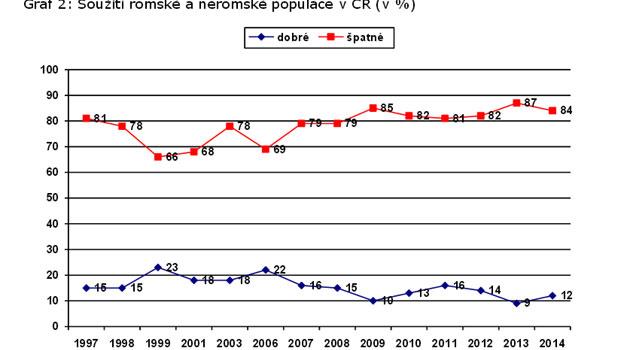Czech survey shows welfare less acceptable than murder or stealing

Czechs believe that living on welfare is worse than either murdering someone believed to be a thief or committing theft itself. Those are the results of an opinion poll conducted by the Center for Public Opinion Research (CVVM).
More than three-quarters of respondents said it is immoral not to work and to receive welfare instead. On the other hand, murdering someone you believe to be a thief was considered unacceptable by only 41 % of respondents.
Czechs even believe that adultery, corruption, and drug use are all more acceptable than living on welfare. Living on state support without seeking work was considered either completely unacceptable or at least quite immoral by 77 % of respondents.
Only 8 % of respondents said such behavior is morally acceptable. Twice as many Czechs, or 16 %, said it would not bother them to rob the state of its taxes by failing to report personal income.
Lying on one’s tax returns was unacceptable to just 58 % of respondents. When it comes to someone believed to be a thief, human life has even less value to the Czechs, according to the survey.
A total of 31 % of respondents said they would approve of murdering a suspected perpetrator to protect their own property. On the other hand, many Czechs said they would have no problem stealing someone else’s property, especially in situations where they would not have to lift a wallet directly from someone’s pocket.
The most-approved kind of theft in this respect is the illegal downloading of music or films online, which was considered morally acceptable by 38 % of respondents and unacceptable by only 33 %. Many people, however, said that not only would it not bother them to deprive a film distributor or the state of money, it would also not bother them to deprive stranger who had lost their wallets of money – 21 % of respondents said they would have no qualms about keeping money for themselves found under such circumstances.
Is there a culture of poverty?
The survey also entered into the current discussion about whether there exists a "culture or morality of poverty", attempting to test in several areas whether this concept corresponds to the data. There were significant differences in the responses given to some questions by respondents depending on their standard of living, which respondents self-reported as either "good", "average", or "poor".
For example, 64 % of people reporting a "good" standard of living said it is unacceptable not to look for work and to live only on welfare and gifts, while 59 % of those with an "average" standard found it unacceptable and only 48 % of those with a "poor" standard of living did. As far as keeping found money was concerned, 36 % of those with a "good" standard of living said it was unacceptable, compared to 32 % of those with an "average" standard and 28 % of those with a "poor" standard of living.
When asked whether it is unacceptable to provide untrue data when requesting welfare, 62 % of those with a "good" standard of living found it unacceptable compared to 65 % of those with an "average" standard and 53 % of those with a "poor" standard of living. The CVVM survey says the following of these findings: "These results are statistically significant, but they are not the kind of results that would make it possible to speak of a distinct ‘culture of poverty’."
Of course, these are definitely differences in moral values that could be intensified. Such intensification could occur, for example, in socially excluded localities or in families living generation after generation at the poverty line.